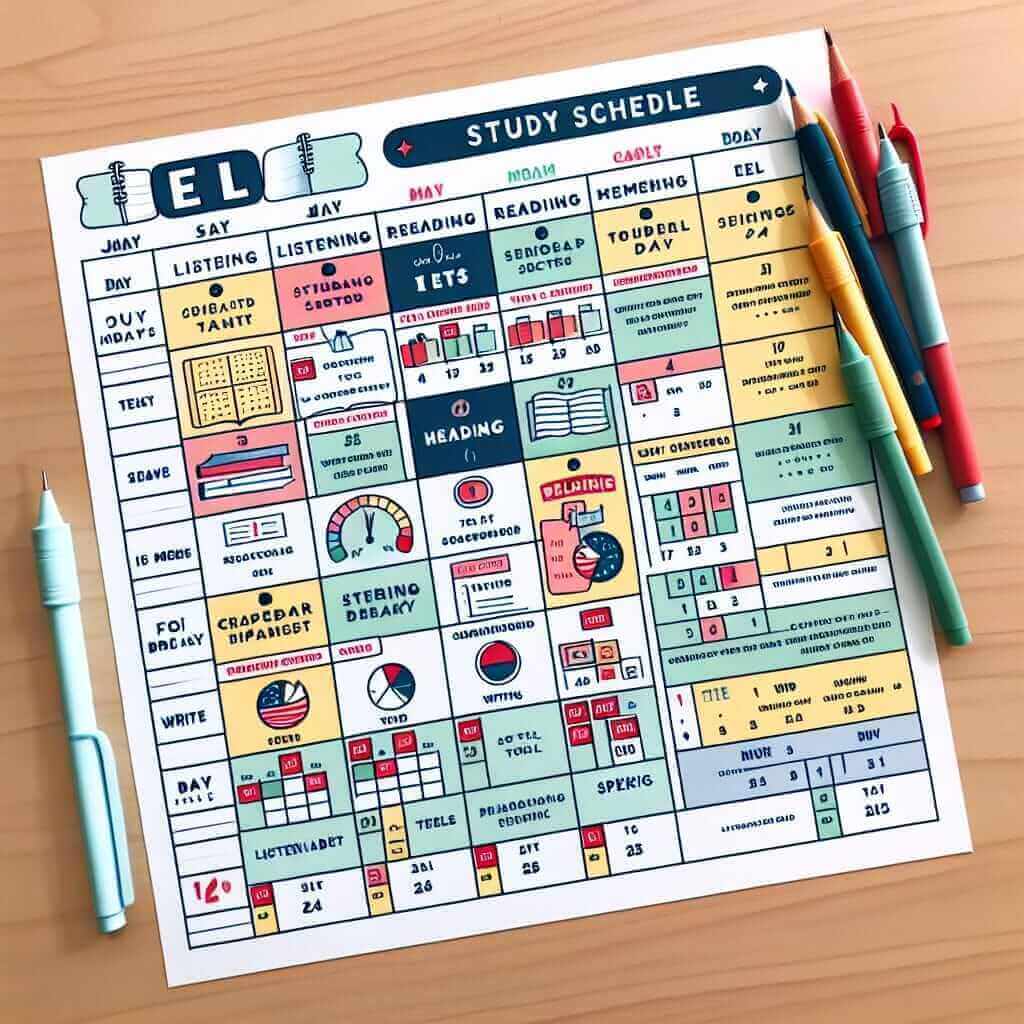Preparing for the IELTS exam in 12 days can seem like a daunting task. However, with a strategic approach and focused study, it is certainly achievable. This article provides an in-depth guide on how to prepare effectively for the IELTS in this short period.
Understanding the IELTS Exam
Before jumping into the preparation strategies, it is important to understand what the IELTS exam entails. The IELTS (International English Language Testing System) assesses your English proficiency across four skills: Listening, Reading, Writing, and Speaking. The test is widely recognized by educational institutions and employers globally, making achieving a high score incredibly valuable.
Day-to-Day Study Plan
Day 1-3: Initial Assessment and Listening
Keywords: Initial assessment, IELTS Listening preparation, practice tests, common IELTS listening mistakes.
Start your preparation with an initial assessment. Take a full-length practice test to understand your current level and identify areas of weakness.
- Listening Practice:
- Listen to various IELTS Listening practice tests. Focus on different accents and types of recordings (monologues, conversations, academic lectures).
- Example: Listening Practice Test 1 from Cambridge IELTS series.
- Error Analysis:
- Example: If you miss answers because of speed, try slowing down the recording and gradually increasing the speed.
Day 4-5: Reading Techniques
Keywords: IELTS Reading tips, skimming and scanning, practice materials, common reading pitfalls.
- Reading Strategies:
- Practice skimming and scanning techniques to quickly find answers to questions.
- Example: Complete a full reading passage from IELTS 12 Academic with 40 questions.
- Common Issues:
- Example: Misinterpreting True/False/Not Given questions due to lack of attention to keyword synonyms.
Day 6-8: Writing Skills
Keywords: IELTS Writing tasks, Task 1 and Task 2 preparation, coherence and cohesion, practice essays.
- Writing Practice:
- Understand the structure and requirements for both Task 1 and Task 2.
- Task 1 (Academic): Describe graphs, charts, or processes.
- Task 1 (General Training): Write a letter.
- Task 2 (Both): Write an essay.
- Example: Write an essay on “The impact of technology on society.” Review structure, coherence, and arguments.
- Common Mistakes:
- Example: Not addressing all parts of the essay prompt or not using a variety of sentence structures.
- Understand the structure and requirements for both Task 1 and Task 2.
Day 9-10: Speaking Practice
Keywords: IELTS Speaking test, practice questions, fluency and coherence, common mistakes.
- Speaking Enhancements:
- Practice answering common IELTS Speaking topics.
- Example: Practice introducing yourself, describing a memorable event, and discussing a broader issue for Part 1, 2, and 3, respectively.
- Record yourself to evaluate pronunciation and fluency.
- Mistakes to Avoid:
- Example: Speaking too fast or using repetitious vocabulary. Aim for natural, varied speech.
Day 11-12: Full Practice Tests and Review
Keywords: Full-length IELTS practice tests, time management, review mistakes.
- Mock Exams:
- Take complete IELTS practice tests under timed conditions to simulate the actual exam.
- Example: Use a test from the Cambridge IELTS series that includes all four sections.
- Review mistakes meticulously. Identify recurring issues and address them.
- Timing Issues:
- Example: Running out of time during the Reading or Writing section. Focus on pacing strategies like dividing time per passage or question.

Common Errors and How to Avoid Them
Avoiding Common Pitfalls
Keywords: Common IELTS errors, how to avoid mistakes, IELTS preparation strategies.
- Listening:
- Avoid losing marks by not following instructions. Make sure you answer only what’s asked, e.g., write one word or a number as specified.
- Reading:
- Don’t spend too long on any one question. Move on and come back if necessary.
- Writing:
- Avoid informal language in Task 2 essays. Use formal tone and varied sentence structures.
- Speaking:
- Don’t memorize answers. The examiner can differentiate between natural speech and rote responses. Be spontaneous and coherent.
Effective Practice Methods
Keywords: Effective IELTS practice, study techniques, improving IELTS scores.
- Consistent Practice:
- Allocate specific time each day to each section.
- Example: Spend 1-2 hours on intensive practice per skill.
- Quality Materials:
- Use reputable sources such as the Cambridge IELTS books, British Council practice materials, and online platforms like IELTS.org.
- Peer Review:
- Engage in study groups or find a study partner. Peer review can provide new insights and constructive feedback.
Conclusion
Preparing for the IELTS exam in just 12 days is challenging but achievable with a structured approach. Begin with an initial assessment, focus intensively on each section, avoid common errors, and practice effectively using reliable resources. Remember, consistency and quality of practice are key to improving your score. Stay focused, practice diligently, and success will follow. Share your thoughts or questions in the comments section and explore more tips on IELTS.NET to further enhance your preparation. Good luck!